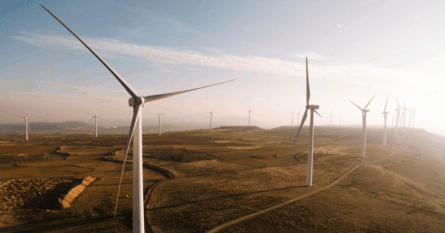Estimated reading time: 6 minutes
Curious about your environmental impact? Discover how a carbon footprint app can help you track and reduce your emissions.

While climate change is a global issue, there are steps you can take to help reduce your personal impact on the environment – every little bit counts. One of these steps is to initiate carbon footprint tracking. From daily commuting to household choices, a carbon footprint app empowers you to make conscious decisions that benefit both you and the environment.
Table of Contents
- What Is a Carbon Footprint?
- What Is the Average Amount of Carbon That the Typical Consumer Emits?
- Carbon Footprint App – Which to Choose?
- Your Sustainable Journey Starts Here
What Is a Carbon Footprint?
To put it simply, a carbon footprint, as defined by Oxford, is the total amount of greenhouse gas emissions associated with the production of a product or the occurrence of an activity. These emissions primarily come from four main areas for most people in developed countries: their use of household energy, transportation, food choices, and the various products they purchase, such as appliances, clothing, and vehicles.
Each of these activities and products contributes to a person’s carbon footprint. Your personal carbon footprint is the sum of all the emissions resulting from the products you buy and use, the activities you engage in, and more. Mike Berners-Lee, a professor at Lancaster University in the UK and author of The Carbon Footprint of Everything makes this clear with an example. Essentially, a person who regularly consumes beef will have a larger carbon footprint in the food category compared to a vegan. However, if the vegan commutes an hour each day in an SUV to work, their overall carbon footprint might be larger compared to the beef-eater who bikes to a nearby office. Yet, both of their carbon footprints may be overshadowed by the businesswoman who flies first-class cross-country twice a month.
What Is the Average Amount of Carbon That the Typical Consumer Emits?
Wealth, energy consumption, and the use of goods and services are not distributed equally around the world, and carbon dioxide (CO2) emissions follow this trend. Emissions differ from one country to another and from one generation to the next, but perhaps the most pronounced disparities are seen among different income groups.
In 2021, the typical North American released 11 times more energy-related CO2 than an average African. However, the differences in emissions among income groups are even more striking. The richest 1% of global emitters each had carbon footprints over 50 times larger than the poorest 1%. On a global scale, the typical carbon footprint from energy use is around 4.7 tonnes of CO2 per person. To give you a better picture, this is like taking two round-trip flights from Singapore to New York or driving an average SUV for 18 months. These disparities are mainly due to differences in income, wealth, and how people live and consume.
By tracking your emissions with a carbon footprint app, you’re able to have a clearer picture of your individual actions. With this knowledge, you can make informed decisions about what parts of your lifestyle you might like to change, and how.
That could mean reducing your meat consumption, turning off your lights more regularly, or holding long-distance work meetings via Zoom rather than in-person.
Carbon Footprint App – Which to Choose?
Klima
With climate app Klima, you answer a series of questions about your lifestyle and where you live to get an estimate of your individual emissions. This can then be customized further with their advanced calculator.
Once you’ve got an idea of your carbon footprint, Klima then sets up an offset subscription to fund any or all of their three main projects to help remove or reduce the equivalent emissions elsewhere.
The projects are tree planting, solar power, and clean cooking. Klima states on their website that their projects are verified through the Verified Carbon Standard, or the Gold Standard developed by WWF.
Commons
Commons touts itself as your “personal sustainability team”, with an app that helps you to curate an offset portfolio to maximize the impact of your donations.
By connecting your credit or debit card to the app, you can track the emissions on all your purchases. The app estimates the average greenhouse gas emissions per dollar created by each product or service you buy.
Commons accounts for individual differences – if you’re a vegetarian your grocery bill will have a lower footprint compared to a meat eater’s – so you’re not placed in a flat-fee subscription model. Rather, you only offset what you buy, meaning if you emit less, you pay less.
Capture
This carbon offsetting app uses GPS tracking to make predictions on your daily travel emissions and uses a questionnaire to help track emissions from food.
Capture states that offsetting is a “last resort” when it comes to “plant-friendly living”, with the app’s first focus on helping you track and reduce your emissions.
According to their website, all CO2 calculations are based on recommendations from the Intergovernmental Panel on Climate Change (IPCC), with its offsetting projects enlisted from Gold Standard and American Carbon Registry-verified sources.
There’s also a feature in Capture that lets companies gamify sustainability for their employees through an individualized dashboard. Employees take part in challenges like reducing single-use plastics and then log their success to compete for badges via a leaderboard.
offCents
One for the business travelers, this app only tracks your carbon emissions from transportation. offCents shows you the emissions for each trip you make, as well as a monthly total.
When you avoid travel that is high in carbon emissions, you can earn CO2 offset credits, which can be put towards offsetting emissions from travel you can’t avoid. You can also purchase additional credit if you don’t have enough credit.
Projects supported by offCents include methane capture, landfill gas, and energy efficiency. The company states that all projects meet the standards set out by Verified Carbon Standard, Climate Action Reserve, or the American Carbon Registry.
Get it for Android
Your Sustainable Journey Starts Here
With the help of a user-friendly carbon footprint app, you can measure your daily impact and make eco-conscious choices. And when it comes to transportation, Blacklane can help you to make smarter and more sustainable transport decisions.

In 2017, we marked a significant industry milestone by becoming the first to offset carbon emissions for all rides, demonstrating our commitment to sustainability and responsible travel practices. Our next mission is to offset all remaining carbon emissions from 2017 back to Blacklane’s inception.
Today, we are actively working to integrate sustainability into our daily operations. We do this by efficiently filling ’empty leg’ journeys for chauffeurs, ensuring they have a reliable income. Additionally, we collaborate with organizations such as The Climate Pledge, Leaders for Climate Action, and the Solar Impulse Foundation.
Notably, we have committed to achieving net-zero emissions by 2030. We are transitioning our limousines to electric vehicles (EVs), including an exclusive electric Mercedes-Benz EQS fleet recently launched in Dubai. Furthermore, we introduced new City to City rides, offering routes between major cities and regions in Europe, the U.S., and the UAE. This expanded service reduces the need for short-haul flights, and these rides can be shared by up to four individuals, thus benefiting both the environment and your budget.




